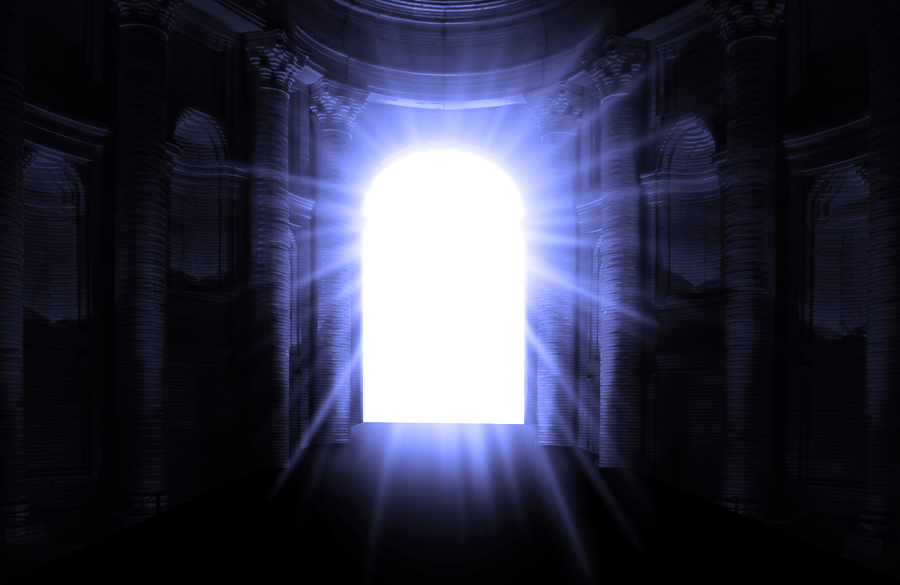
About the author : Antwuan Malone
Antwuan Malone is a Ministry Director at ELEVATE Young Adult Ministry (elevateministry.net) where empowers young adults toward Christian leadership. He is passionate about seeing young adults take their place in church history by drawing near enough to God to hear his call on their life, and courageously living in obedience to that call.
Why Atheists Are Wrong About the Afterlife (Part 1)
I’ve recently found a couple atheist channels on YouTube that make compelling and clear atheistic points in artistic, beautiful ways. Some are done through cartoon, like the ones by DarkMatter2525 (with a fair amount of profanity for those of you concerned with that). Others are done by video cam exposition like DarkAntics. And then there’s TheThinkingAtheist who puts together some well produced videos that are pretty easy to consume.
Today, I want to begin responding to a video posted by TheThinkingAtheist which features a series of responses from prominent YouTubian atheists about the afterlife. It’s about nine minutes, so to treat it fully, I’ll have to make this a post series. Gotta try to keep the word count down on these things. So without further ado, check out the video then read on.
Death
We all struggle with death. Our own death, the death of a loved one, the death of the innocent. Admitting this must be the starting point for this conversation. It should be safe to say that for all of us, death has felt unfair, unjust, or imbalanced in one way or another at some time in our life. If you are among the few who has never felt this way about death, then it’s pointless to continue reading because the chance of ending the conversation respectfully will be minimal.
The subject of “afterlife” then, is the response to those negative feelings about death. As such, many of the views represented in the video seem to attempt to (to use Bible language) take the “sting” out of death by offering its inevitability as a beautiful, natural, even preferable and logical way for life to play itself out. I think the point of the video is that we don’t need a God (whom they feel doesn’t exist) or his heaven to make us feel better about dying. Instead, accepting the logical reasoning behind death can, well, comfort us. I disagree, of course, but I respect the way the video was put together.
1. The Sand/Beach Analogy
The first metaphor offered in the video asks if one grain of sand is removed from the beach does it cause the beach to behave differently. The point, of course, is that the universe is so vast a “beach” that our lives (even collectively, as humanity) amount comparatively to a grain of sand. Thus, our deaths do not send some shockwave to the universe that would suddenly stop it from functioning.
I agree with the analogy. I just don’t know what it has to do with afterlife or even the meaning of life. As a Christian, I look at the Bible as the story of Man. That is, I believe God gave us enough to know and speculate about our place in the universe.I see nothing in Christianity that suggests the universe is dependent on humanity in any way, so making this point only serves to disprove the idea that the universe was made for Man. Which, in the case of Christianity, is a non-issue. And when it was (decades ago) it was bad theology. We didn’t need science to tell us this, because a proper look at the scriptures would have shown us that God is the central piece to creation (not Man).
In fact, the Bible suggests Man’s lack of creational priority in James 4:14 where it says, “What is your life? You are a mist that appears for a little while and then vanishes.” The Christian worldview believes God sustains the universe, not humanity. This reasoning, then, offers little to the conversation. It assumes that (for Christians) Man must be the center of creation to have meaning. When in reality, such a central position is not necessary for (nor does it align with) the Christian dogma of human purpose and meaning.
The quotes that follow expound on the metaphor by concluding that because we are so small, our lives must not hold much meaning. They don’t say this directly, but in using words like “insignificant” the groundwork is being set that your life does not serve a particular purpose… at least not a purpose beyond what meaning you yourself may assign it.
2. “Why are you, and why was I, willing to sacrifice my humanity, sacrifice the sum total of human experience and interaction, and knowledge on the altar of a dream.”
There are, of course, many biblical answers to this question. But seeing that an atheist would regard what the Bible says much concerning this, it makes little sense to quote it. As such, the answer of the question becomes rather complex. I suppose we could devote much of our conversation to it. I’ll try to sum it up. It is no doubt heroic of soldiers to risk (or sacrifice) their lives for the idea that America represents. Sure there are tangible things about that American idea, like our freedoms and rights. But the idea of a society that thrives on excellence and opportunity is one that many are honored to have fought to further or maintain.
The question then, is why does anyone sacrifice their humanity, human experience, so forth and so on… for anything. And further, I would ask, why is such sacrifice considered so noble do theists and atheists alike.
The simple answer to this rhetorical question, is that Christian believe in something worth sacrificing for. And that something has everything to do with who God is to them, and what He designed them to accomplish on Earth.
3. “…It’s just absurd to me, how many people live for dying in this way.”
This is the quote from Laci Green, and I’m not sure exactly what she’s saying. Probably because it’s not in the full context of her statement. No fault of hers, I guess. I like Laci. I think I remember seeing some of her videos a few years ago. I assume the pertinent portion of the quote is the latter portion — the “how many people live for dying in this way.” I assume the people she is referring to are Christians (but I suppose she could still be quoting someone).
This is particularly interesting wording. Again. I agree. The Christian worldview is (again, admittedly by the Bible) absurd to those with a different worldview. It’s historically always been that way. It’s not an “Aha!” moment to hear an atheist cannot logically come to terms with “living for dying” as she states. One might even say Jesus viewed his own life this way, since the Christian belief of Jesus’ ultimate purpose had more to do with his dying, then his gracious and philanthropic living.
I think that’s enough for Part 1.




